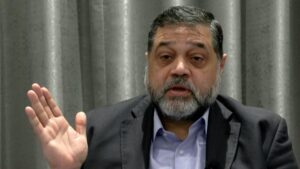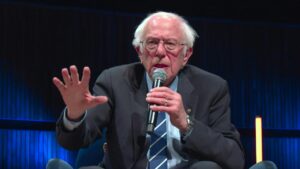Fears of More Recessionary Fed Rate Hikes as Jobs Numbers Smash Expectations
New Labor Department data published Friday showed that U.S. job growth surged to 528,000 last month, defying analysts’ expectations of a slowdown and deepening concerns that the Federal Reserve will continue hiking interest rates in its bid to curb inflation.
The better-than-predicted hiring and the slight uptick in wage growth after months of deceleration increase the likelihood that the central bank will impose its third consecutive 75-basis-point interest rate boost in September, despite warnings that the Fed’s effort to cool economic demand and rein in prices could induce a damaging recession and mass unemployment.
Heidi Shierholz, president of the Economic Policy Institute (EPI), said Friday that while the new jobs figures show that “we’re almost surely not in a recession now, the Fed may have already overshot and secured a recession in coming months” as rate hikes slowly work their way through the economy, slashing investment by making borrowing more expensive.
“Regardless, they should slow the pace of rate increases substantially and be ready to go into neutral or even cut rates,” Shierholz argued. “A recession caused by the Fed raising rates too aggressively would undo a great deal of the enormous gains that have occurred in the current recovery.”
Fed chair Jerome Powell has publicly admitted that rate hikes are not likely to impact key drivers of record-high inflation such as gas and food prices, leading lawmakers and economists to caution that the central bank is risking a recession and huge job loss for no reason.
The Fed chief has conceded that the central bank’s actions could push the U.S. into recession, though he has said that is not policymakers’ intention.
Despite mounting recession concerns stemming from the Fed’s actions and fresh evidence of slowing economic growth, U.S. central bankers have provided no indication that they plan to stop raising interest rates any time soon.
Mary Daly, the president of the Federal Reserve Bank of San Francisco, told the New York Times earlier this week that the central bank is “nowhere near almost done” hiking rates, a sentiment that other officials echoed.
But experts have stressed that inflation is hardly just a U.S. problem, pointing to global supply chain snags caused by the pandemic and major energy market disruptions from Russia’s war on Ukraine—price pressures that the Fed can do nothing about.
Senate Democrats are on the verge of passing the Inflation Reduction Act, compromise legislation that would modestly cut drug costs for Medicare recipients.
Overall, according to a group of nearly 130 leading economists, the bill would put “downward pressure on inflation.”
Originally published at Commondreams.org.











